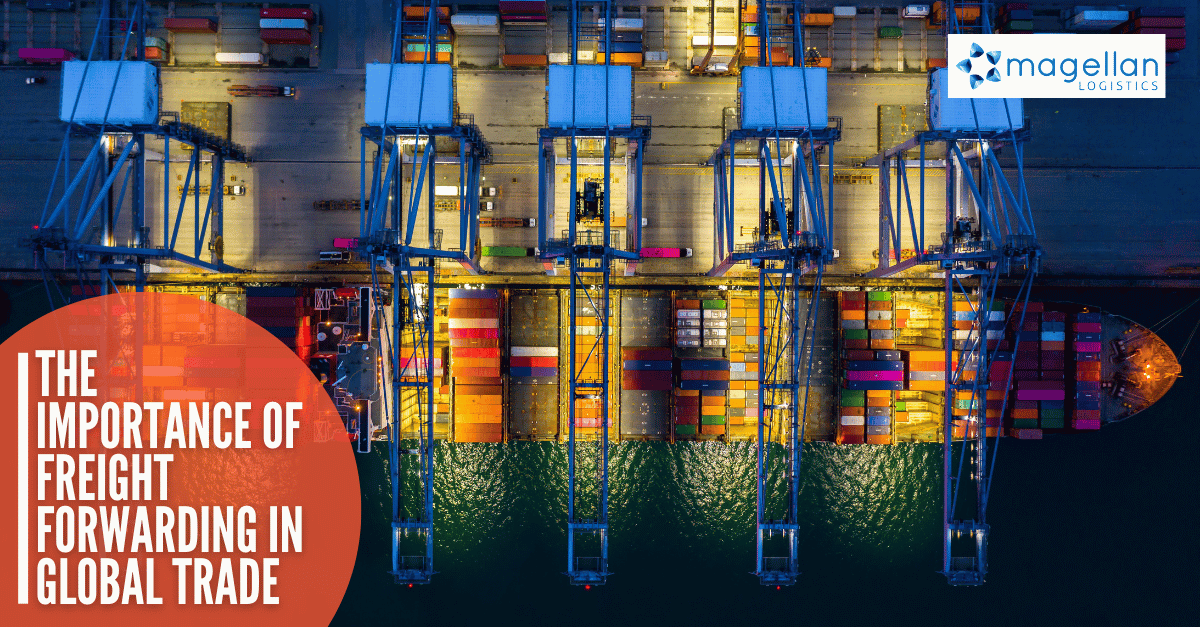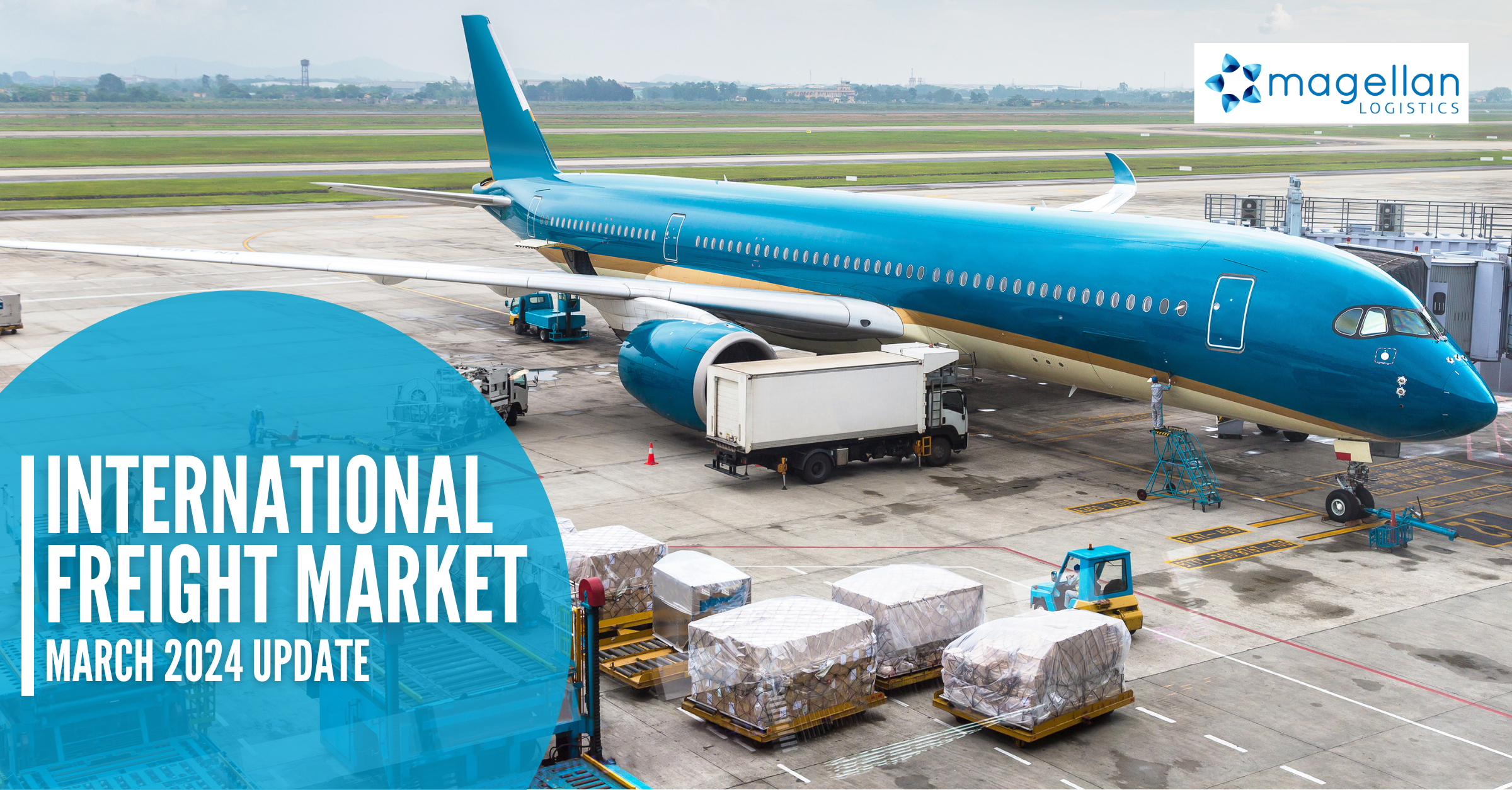In an age characterised by fast-paced globalisation and digital interconnectivity, the indispensable role of freight forwarding is ever more crucial. A key player in facilitating international trade, the freight forwarding sector provides businesses with the tools to efficiently transport goods across international borders, enabling them to tap into new markets and meet the escalating demand for global goods from discerning consumers. This article looks into the complex freight forwarding world, shedding light on how it drives economic growth, reduces logistics costs, ensures regulatory compliance, and manages risk in the global supply chain ecosystem.
The essence of freight forwarding
Before delving into the multifaceted role of freight forwarders, it’s vital to understand who they are and what they do. Essentially, a freight forwarder is a specialist, an individual or a company, that takes on the daunting task of coordinating the movement of goods from one location to another. They serve as critical intermediaries between shippers – the entities sending the goods – and carriers – the companies that offer transportation services. These carriers encompass a range of entities, including airlines, shipping lines, and trucking companies.
Freight forwarders offer extensive services, such as handling customs clearance, managing documentation, arranging cargo insurance, and overseeing logistics. Their expertise in handling the intricate web of international regulations is unparalleled, thus ensuring that goods can move smoothly across international borders.
The role of freight forwarding in economic growth and global trade
Facilitating International Trade: An irreplaceable backbone of international trade, freight forwarders bring a wealth of knowledge and expertise that businesses can leverage to navigate the perplexities of global trade. They establish close relationships with shippers and carriers, ensuring that goods are transported seamlessly across international borders while complying with all requisite regulations and requirements. Beyond managing the physical transport of goods, freight forwarders also provide guidance on crucial matters such as customs clearance, documentation, and insurance. Their deep understanding of various modes of transportation allows them to recommend the most cost-effective and efficient methods for moving goods. By doing so, they simplify the logistical aspect of international trade, allowing businesses to expand their horizons and tap into new markets.
Reducing logistics costs
Freight forwarding services can play a pivotal role in helping businesses trim their logistics costs. With their extensive networks and established relationships with carriers, freight forwarders have the leverage to negotiate lower rates on behalf of their clients. They can also consolidate multiple shipments into one, thereby harnessing the power of economies of scale to garner volume discounts. Beyond these immediate cost-saving measures, freight forwarders can also assist businesses in optimising their supply chains. By conducting detailed analyses of the flow of goods, they can pinpoint bottlenecks and inefficiencies, providing valuable insights on ways to streamline the process and enhance overall efficiency. These cost-saving activities and value-adding recommendations make freight forwarding a strategic function that can enhance competitiveness in the global marketplace.
Ensuring compliance with regulations
International trade is riddled with a complex web of regulations and requirements. Armed with extensive knowledge and expertise, freight forwarders can help businesses comply with these mandatory norms. This includes ensuring the necessary customs clearance, handling critical documentation, and acquiring licensing required to transport certain goods. Familiarity with the diverse regulatory regimes across different countries allows freight forwarders to help businesses avoid regulatory pitfalls and costly mistakes. In so doing, freight forwarding helps companies steer clear of fines, penalties, and unnecessary delays in the transport of goods.
Providing risk management
Beyond their core role, freight forwarders also offer valuable risk management services to businesses that operate in the international trade arena. They can advise companies on the appropriate insurance coverage necessary to protect their shipments against loss or damage. This includes understanding the nuances of cargo insurance and helping businesses understand the claims process should a need arise. Freight forwarders also recommend security measures to mitigate the risk of theft or hijacking during the transit of goods.
Moreover, freight forwarders are equipped to handle unexpected situations that may arise during the shipping process. This could range from port strikes and adverse weather conditions to political unrest in certain regions. By having contingency plans in place, freight forwarders can swiftly adapt to these situations and provide alternative transport solutions if necessary, ensuring minimal disruption to the supply chain.
The extended benefits of freight forwarding
Aside from the core advantages highlighted above, freight forwarders offer a range of additional benefits that reinforce their critical role in global trade.
Access to global networks
Most established freight forwarders have built extensive global networks over time. These networks comprise reputable carriers and logistics providers across different countries. Businesses can leverage these networks to ensure reliable and efficient transportation of their goods.
Customised solutions
Freight forwarders can provide tailored solutions based on the unique requirements of each business. Whether it’s transporting temperature-sensitive goods, handling oversized cargo, or coordinating multi-modal shipments, freight forwarders are adept at providing solutions that meet the specific needs of their clients.
End-to-end service
Freight forwarders often provide end-to-end services. From picking up the goods from the factory or warehouse, managing the packing and labelling, and overseeing the transportation, to ensuring safe delivery at the destination, freight forwarders handle the entire process, offering businesses peace of mind.
In essence, freight forwarding is a critical fulcrum of the global economy. With its significant contributions to international trade, cost savings, regulatory compliance, and risk management, it is an integral element of the worldwide trade ecosystem. Without freight forwarding, global trade could become a complex and costly affair, making it much more challenging for businesses to compete on the world stage.
Institutions like Magellan Logistics are a testament to the vital role of freight forwarders. Magellan offers a comprehensive freight forwarding service that includes sea freight, air freight, customs clearance, and a digital freight portal for round-the-clock visibility of shipments. Discover how we can benefit your business. Contact a Magellan Logistics freight specialist on 1300 651 888.
Sources:
Globalization in transition: The future of trade and global value chains | McKinsey














